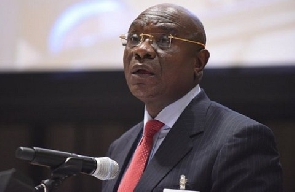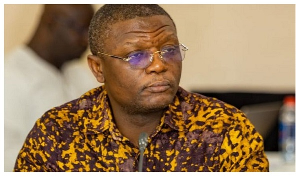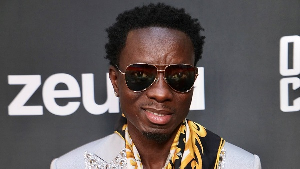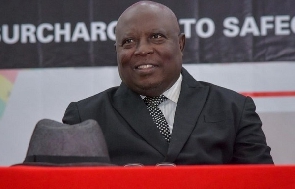Better Late than Never!
The recent visit to Ghana by the American First lady, Laura Bush to launch educational and teaching materials for schools in the country has wakened the ghost of education development which has been haunting the governments of Ghana for some years now. It is reported in Ghana that our President?s participation in Lady Bush?s program has highlighted Kufuor government?s priority of developing education for Ghanaians. Well, whether such important priority should be ?resting? till the visit of Lady Bush to Ghana is not the concern I raise in this write-up.My concern is with the lip service that Governments of Ghana (both past and present) besides that of Dr. Nkrumah?s regime have been paying to the development of education in our dear country as their top priority for national development! Talking about the present, one would expect President Kufuor during his state of the union address this week to give a comprehensive account of any development that his administration has brought to education in Ghana since the NPP assumed the reins of government about five years ago. What has happened to the report from the Education Review Committee set up during the early years of the government? Ghana should not be left behind in the national development of education as a tool for national socio-economic development that many serious countries have embarked upon in the recent years past.
The world over, crucial changes, quite unprecedented are taking place. Countries are more integrated into a global village affecting each other?s environment, economy and culture. The world is getting smaller and at the same time the gap between the rich and the poor countries keeps widening. Undeniably, underlying all these tremendous changes is education-good education with relevance.
Education has been the major facilitator and catalyst in the astonishing changes and transformation sweeping through the world today. The role of formal (school) education in the liberation of the individual mind as well as economic dependence and in national development is therefore quite obvious. Thus, education pays off not only in literacy but also in income! For example, a 2001 Statistics Canada study prepared by University of British Columbia economists David Green and Craig Riddell, found each additional year of education boosts a person?s annual salary by an average of 8.3 percent. The report follows two other recent StatsCan (Statistics Canada) surveys comparing education and income levels. The survey found education was one of the most important factors contributing to financial security. And that, families in which the main income earner had a high-school diploma posted a median net worth of $62,500. If the breadwinner held a university bachelor?s degree, the number nearly doubled, rising to $117,500. (Today, March 19, 2001, Toronto-Canada) It is therefore quite obvious that education is very imperative to the sound development of individuals and nations. Every country ought to provide its people with qualitative and ?not only quantitative? education! And every parent ought to ensure that their child gets the best of formal education as much as possible.
Unfortunate Trend of Formal Education in Ghana:
But it would not be far-fetched to surmise that education in Ghana today is apparently in crisis - from the JSS through the SSS to the tertiary institutions. There is so much uncertainty about and mismanagement of the educational policies initiated by the PNDC government, which were strongly supported by the World Bank. Though things are not as expected, all is not lost yet.
Precisely, it is in the light of this crisis that we must do something about and with our education. We have to put our heads and hands together to revamp education in Ghana.
The government is called upon to take immediate measures to addressing the rapidly deteriorating situation and the prevailing uncertainties. It is urgent for the Ministry of Education to put in place policies to salvage the trends of poor results over the years in the Senior Secondary School Certificate Examinations (SSSCE).
Teachers in Ghana welcome the new incentive packages for them announced by President Kufuor at the recent Second Quadrennial Delegates Conference of the Ghana National Association of Teachers (GNAT). However, I think more needs to be done to improve teacher education in Ghana to well equip and support teachers for/in the their work as wheels of education development.
As a teacher in Canada where I have come across many Ghanaian students I say with certainty that most of them are not doing well at school as they should. Others have even dropped out of school and are seen roaming the streets engaged in frauds, drugs, and other gang activities. They tarnish the image of our communities in these countries of numerous opportunities.
Apparently, education in Ghana has suffered from lack of adequate funding and, inefficient management. However, the problem of poor results could not be put at the doorsteps of the government alone. Most Ghanaian parents/guardians and students everywhere (I stand to be corrected) do not take education seriously too!
Being Serious With Our Children?s Education:
Whilst it could be argued that poverty has denied some Ghanaian parents the ?power? to adequately support their children in school, many who are financially capable are often seen squandering their money on fashion, drinks, and litigation at the expense of our children?s education. We fail to invest in the future of our young ones by failing to invest in their education today. For example, some Ghanaian parents who receive regular child support (in form of money) from governments of progressive countries like Canada where they reside spend the money on themselves instead of, say, buying education insurance with such money for their little ones? future.
Some parents too have become so obsessed with their work and too greedy in their search for money that they have no time or little time for their children?s education. Sad! Many students would achieve higher academic levels if they would take their homework serious. And many students would take their homework serious if parents would support their efforts to do homework. The government and parents must support teachers in their efforts to ensure students? successes in our schools. We cannot talk about raising student achievement without supporting the very people who will make this happen. All the stakeholders in education must support teachers with incentives to achieve ongoing teaching excellence for our students.
Teachers must also develop a professional learning framework to meet the current standard of the teaching and learning process at each stage of their teaching career. It is lamentable to note that some teachers in Ghana do not avail themselves to Professional Learning Programs (PLP) as it is the practice here in Ontario-Ghana.
Last Word:
It is said that knowledge is power and knowledge is also the offspring of education.
The year 2006 calls for quality education for advancement into the next decade, God willing. We must see better results at the basic, secondary and tertiary levels of education in Ghana. The government, teachers, parents and students who are the main stakeholders in education MUST TAKE EDUCATION SERIOUSLY THIS TIME AROUND. Happy 2006 to all!



















